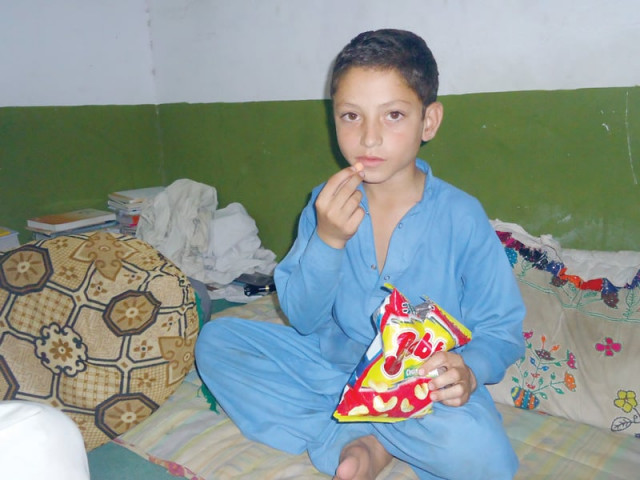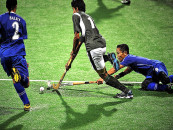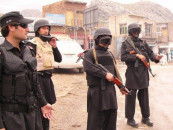Braving the odds: Journey on foot brings family to new Bannu home
On the 19th of June, eight-year-old Majid Khan was on the rooftop of his house, playing with his pet pigeons.

On the 19th of June, eight-year-old Majid Khan was on the rooftop of his house, playing with his pet pigeons. As the birds took flight, he urged them on, shouting and clapping with glee as they flew higher and higher. He heard his father angrily shout for him to come downstairs, to prepare to leave their home. It was day four of Operation Zarb-e-Azb and Majid’s family was preparing to flee from their village of Tappi in Miramshah, North Waziristan.
“I quickly put out some bowls of water and some seeds for the pigeons,” said Majid, “Maybe they have been eating the anaaj in my absence.” Now one of an estimated 800,000 internally displaced persons in Bannu, Majid travelled from Tappi to the Saidgai check post by foot, a journey that took two days.
A human caravan of men, women and children mapped their route along the banks of the Tochi River, crossing Mubarak Shah, Eidak, Khadi, Zeraka, Asoree, Eso Khel, and Hyder Khel among other areas. “We rested in Eidak for a while and my mother fed us rotis,” Majid said. “She made sure we remained in her sight the whole time as she was scared that we would go missing in the crowd.”
While many families were able to afford transport to Bannu, many, like Majid’s family undertook the trek on foot. They travelled light, carrying only a few household items and leaving behind their animals.
When the family reached the Saidgai security check post, Majid and his 15 siblings waited under a blackberry tree as his father registered the family members. It took two more days for the registration process to be completed, and the family took shelter where they could, sleeping on the open ground and foraging for food and water. “It was horrible to see children crying for water at Saidgai,” Majid recalled. “I did not cry until I saw my uncle fall unconscious. We brought him under the tree’s shade, but there was no doctor and no medicine to tend to him.” A local tribesman cared for Majid’s uncle, Lal Muhammad, until he recovered. “That is one thing I will never forget,” Majid says.
After the family was finally registered, they travelled on to Bannu using the transport facilities available. They are temporarily settled with relatives here and have been given two rooms – one for each of Majid’s father’s wives, who have eight children each.
A student in the second grade at Salman Middle Public School in Miramshah, Majid says he misses his school friends. “I did not even bring my schoolbag here,” he said. “I don’t know where my class friends have gone. At night I often dream I am with them, playing with my friends Yusaf, Asim, Mughid, Israr and Abid.”
Majid’s father, Abdul Salam, says he is anxious about how to care for his family here. “In Tappi, I was looking forward to the harvest season as I had fields of okra, tomatoes and an orchard of grapes. Here I have no source of income.” He left his cattle behind in Tappi and says the family will not return until peace is restored in the area. “The grand jirga in North Waziristan was telling us not to leave our homes, saying the issue would be resolved through negotiations. But then the operation started,” he said.
Published in The Express Tribune, July 9th, 2014.



















COMMENTS
Comments are moderated and generally will be posted if they are on-topic and not abusive.
For more information, please see our Comments FAQ